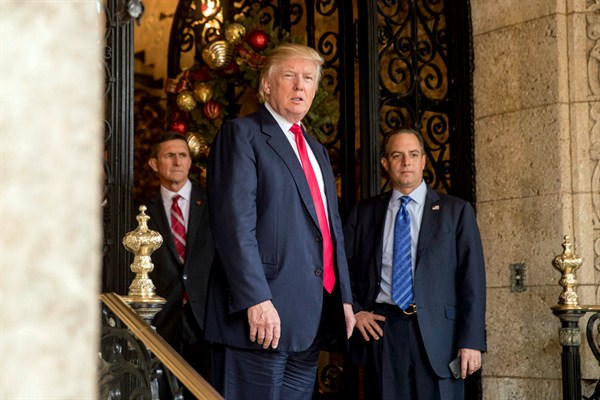In last week’s column, I noted that some of the positions taken by President-elect Donald Trump during his bid for the White House, along with those of his key advisers like retired Lt. Gen. Michael Flynn and Stephen Bannon, reflect what has been called a “clash of civilizations” perspective.
For those who subscribe to this framework, the U.S.-led and predominantly Christian West is under assault from Islam. The terrorism, violence and barbarity of organizations like the so-called Islamic State and al-Qaida are not simply malignancies within Islam but signs of the religion’s inherent incompatibility with Western culture. Many advocates of this idea are convinced that Islam has already begun to infiltrate the West through immigrants and refugees, and they call on the United States to push back against the perceived encroachment.
This week brought further evidence that Trump is open to the clash of civilizations idea, even if not fully committed to it. He portrayed the horrific killings at a Christmas market in Berlin, which the Islamic State has taken credit for, as an assault on Christianity. A list of defense priorities that the Trump transition team sent to the Pentagon indicated that defeating and destroying the Islamic State would be the new administration’s top national security focus. Notably the memo did not mention Russia since, as my column last week pointed out, advocates of the clash of civilizations perspective see Moscow as a partner, not an adversary. If Trump does fully embrace the clash of civilizations idea as his thinking on national security evolves, the results would be profound, leading to the most far-reaching transformation of America’s strategy since the beginning of the Cold War.

